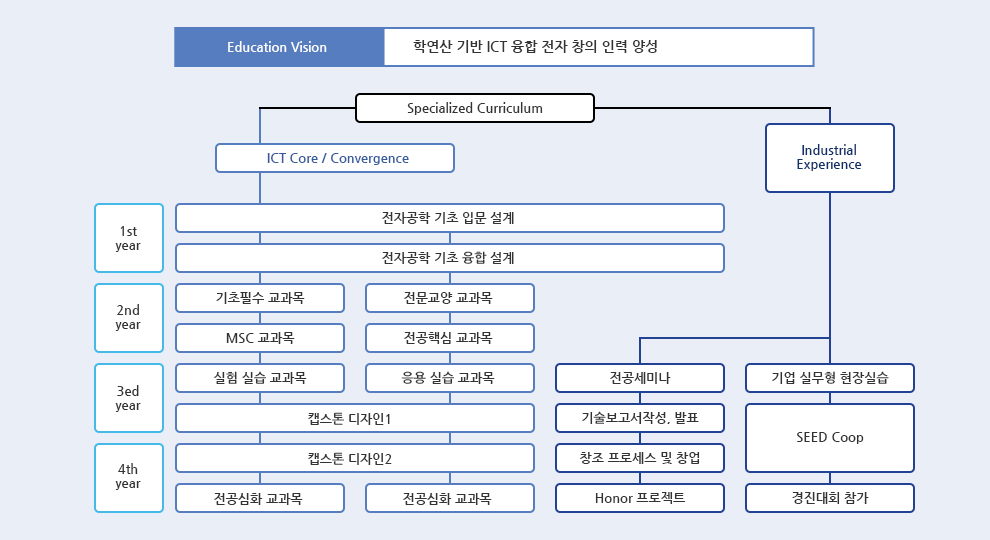@Division of Electrical Engineering - Engineering Sciences
@Division of Electrical Engineering
Division of Electrical Engineering
학과 홈페이지 바로가기(https://eece.hanyang.ac.kr/)
Our goal is to train leading engineers in Electrical and Electronic Engineering through convergence of advanced science technologies and Information and Communication Technologies (ICT). Applications of ICT are vastly growing in various areas, such as safety, security, transportation, medical, education, defense, manufacturing, and smartphones/cars, to name a few. Students are expected to gain necessary knowledge required for Electronic Engineering (Semiconductor, Circuit Design, System on Chip), Communication Engineering (IT, Multimedia Signal Processing and System Engineering (Electro-electric HW/SW, Computer HW/SW, Electric Energy) by participating in research oriented projects. Hanyang ranked the 2nd best in the evaluation of the Korean Council for University Education in 2000, and has been recognized by the Creative Korea (CK) in 2014 which is responsible for supporting training and support programs, such as textbook development, scholarships, advanced lecture rooms/laboratories, collaboration with industry, student club activation, and tutors (SEED teaching assistants).
Transition in IT Paradigm
Future industries are expected to undergo a dramatic shortened cycle of technology reform and the gap between several technologies is expected to converge at a noticeable accelerated dynamic rate of change. This type of renovation and knowledge-based industrial structure will allow the creation of new technologies to be offered at a university level, demanding of the development of specialized manpower.
Educational Objectives
- Train creative leaders to understand and design new systems with fundamental engineering knowledge
- Train practical leaders to apply acquired engineering knowledge to commercial ICT systems
- Train global leaders to understand and utilize world-class leading technologies
Undergraduate Programs
To keep up with future trends toward convergence of industrial technologies, our undergraduate program offers a systematic curriculum which includes fundamental required subjects and major core subjects for Electronics and Electrical Engineering. Fundamental subjects include calculus and physics in the 1st year, basic major subjects include Engineering Mathematics, Electromagnetics, Circuit Theories, and Digital Logic Design in the 2nd year, and major core subjects for ICT application based on semiconductors and circuits, control and robotics, communication and signal processing, electric energy, and computer are offered in the 3rd-4th years. In particular, design education through subjects of design introduction, basic convergence design, capstone design, major experiment, and practice-theory 2+2 subjects. In addition, industrial-oriented education through invited seminars are offered.

Graduate Programs
Graduate programs are offered in two Departments namely Electronic Systems Engineering and Electronic Communication Engineering. Each Department offers programs of study leading to the degrees of M.S., M.S.-Ph.D. integration, and Ph.D. in Electrical and Electronic Engineering in the following research areas: Semiconductors, Electronic Circuits, Computer, Control and Robotics, Electric Energy, Communication, and Signal Processing.